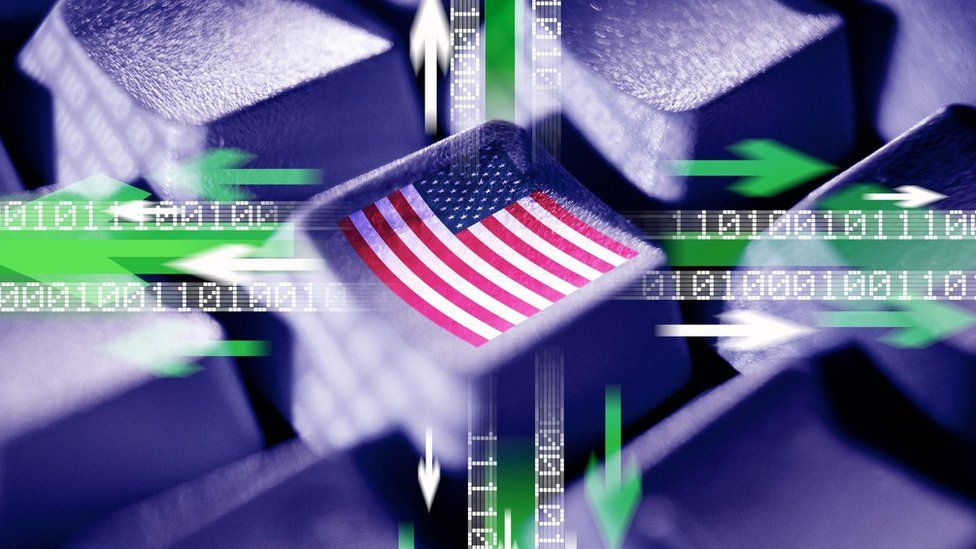
The technical coordination of the Internet at a global level involves a series of organizations and entities working together to ensure the efficient and stable functioning of the network. Although Internet governance is a complex and multifaceted subject, It is important to highlight the role historically played by the United States and how this has been perceived by some as an advantage in controlling the network.
The Internet is made up of a vast network of interconnected networks that spans the entire world.. To ensure that all connected devices can communicate with each other efficiently, technical coordination is necessary to standardize protocols, IP addresses, domain names and other related aspects.
One of the central organizations in the technical coordination of the Internet is the Internet Corporation for Assigned Names and Numbers (ICANN). ICANN is a non-profit organization responsible for assigning IP addresses and top-level domain names, like .com, .org e .net. ICANN operates under a multistakeholder model, involving the participation of governments, private sector, civil society and technical community.
Historically, the United States played an important role in the technical coordination of the Internet. This is mainly due to the fact that the Internet was initially developed in the United States and many of the key organizations, como a ICANN, have headquarters in the country. Besides that, os Estados Unidos foram responsáveis por criar a Agência de Projetos de Pesquisa Avançada (ARPA) in the decade 1960, que desenvolveu os fundamentos da comunicação em rede que deram origem à Internet.
Uma das razões pelas quais alguns veem os Estados Unidos como tendo uma vantagem de controle sobre a Internet está relacionada ao papel do Departamento de Comércio dos Estados Unidos na supervisão da ICANN. Historically, o Departamento de Comércio dos Estados Unidos desempenhou um papel de supervisão sobre a ICANN por meio de um contrato que concedeu à organização a responsabilidade de administrar funções-chave da Internet.
However, it is important to emphasize that, in the last years, houve esforços para descentralizar essa supervisão e aumentar a participação global na governança da Internet. In 2016, o Departamento de Comércio dos Estados Unidos transferiu suas funções de supervisão para a comunidade global da Internet. Isso resultou em uma transição simbólica conhecida como “IANA stewardship transition”, em que a ICANN assumiu plenamente as funções de coordenação técnica anteriormente supervisionadas pelo governo dos Estados Unidos.
Besides that, existem várias outras organizações e fóruns internacionais envolvidos na governança da Internet, como a Internet Engineering Task Force (IETF) e o Fórum de Governança da Internet (IGF). Esses fóruns reúnem representantes de governos, private sector, sociedade civil e comunidade técnica de todo o mundo para discutir questões relacionadas à governança da Internet e coordenar esforços técnicos.
Although Internet governance is a global effort and there have been advances in decentralizing control, It is important to recognize that there are concerns about incorrect use of the network, including from the United States.
A recent example of this is the report released by Facebook in partnership with the Atlantic Council’s Digital Forensic Research Lab (DFRLab) e o Center for Media and Democracy (CMD), which highlights disinformation practices and information operations carried out by the United States Army. According to the report, the United States Army has been identified as a major source of online disinformation, seeking to influence and shape narratives to achieve strategic objectives.
The report finds that the United States Army employed mass information tactics to influence public perception of global events and conflicts.. These operations involve the use of fake accounts and social media manipulation techniques to spread misinformation, promote views favorable to US interests and undermine adversarial narratives.
These actions raise ethical and privacy concerns, as the spread of misinformation can negatively affect public trust, influence elections and destabilize entire regions. Besides that, these practices contradict the principles of an open Internet, inclusive and globally coordinated.
It is important to note that these practices are not exclusive to the United States. Several countries have been accused of conducting online information operations to achieve their political and strategic objectives. However, given the dominant position of the United States in the technological sphere and the influence of its technology companies, US government misuse of the network has a significant impact.
To deal with these concerns, it is necessary to strengthen Internet governance and supervision mechanisms at a global level. This includes greater participation from different stakeholders, including governments, civil society, private sector and technical community. Besides that, It is essential to promote transparency and responsibility in the use of the network, as well as developing effective mechanisms to combat disinformation and manipulation of information.
Awareness and education about the importance of a free Internet, open and trustworthy also play a crucial role. As users become more informed about the risks associated with disinformation and information operations, they can become better able to identify and resist these deceptive practices.
Although technical coordination of the Internet is a global task involving multiple organizations and stakeholders, network misuse is still a significant concern. It is necessary to continue strengthening Internet governance, promoting transparency and accountability, and educating users about the risks associated with disinformation and information operations. Only then can we build a truly open Internet, inclusive and trustworthy.
